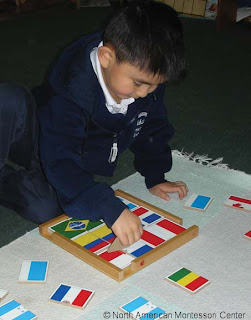On the morning of US President Obama’s inauguration, I wrote a blog full of hope. Part of President Obama’s campaign was centered on the promise of early childhood education reform in the United States. In fact, he promised to fund spending in order to bring early childhood education reform to the forefront of education. He said he understood how important a good foundation was in developing lifelong learners and healthy, happy, independent citizens.
In the President’s State of the Union Address last week, I heard no mention of early childhood education. The majority of his comments regarding education were about making higher education more affordable and obtainable. He commented on the need to renew the Elementary and Secondary Education Act, otherwise known as “No Child Left Behind” and the need to increase competition among states to improve American education.
Educational reform is no easy matter. One needs look to Finland for a positive model for educational reform. Beginning in 1960, Finland made the decision to move from an agrarian and industrial society to a Nordic welfare state, or mixed economy. The reform began by looking at where Finnish education was at the time, and having a vision for where it needed to go. With the backing of the government and the support of teachers, Finland’s educational system has moved from a class-based system to one which supports and encourages all citizens of all ages.
Montessori Musings: Education Reform, Montessori, Public Schooling and Obama
Montessori & Educational ReformIn order to reform education, it is crucial that all involved agree to the vision, the goals, and the standards. Why are we reforming education and what will the new model look like? As Montessorians, we fully embrace the Montessori philosophy and methodology as an effective, lifelong learning approach to education. Yet I hear over and over from Montessori educators that Montessori will not/does not work in the public school environment. Our current model of public education certainly has its challenges, but I truly believe that if you are a Montessorian at heart, then you are a living model and testament to the Montessori philosophy. Montessori is not just a method to be used in the classroom; it is a philosophy for life.
President Obama stated that “we need to invest in the skills and education for our people”. As any good investor knows, you need to know what you are investing in before making the decision to invest at all. The world is changing. This is the age of information and our need for skilled labor is being replaced by the need for individuals who are able to access, process, and transfer information quickly and easily. The economy of many developed nations is shifting from traditional industry to economies based on the manipulation of information. Schools can no longer afford to be factories churning out workers. There is an entirely new skill set to be learned and, like Finland faced post World War II, this calls for a new model of education. Dr. Montessori not only recognized this but was ahead of her time when in 1948 she stated:
The need that is so keenly felt for a reform of secondary schools is not only an educational, but also a human and social problem. This can be summed up in one sentence. Schools as they are today, are adapted neither to the needs of adolescence nor to the time in which we live ~ From Childhood to Adolescence, 1949
Characteristics of a Montessori Education
- Psychic wellness
- Intrinsically motivated
- Inner disciplined
- Self-supporting
- Creative thinkers
- Highly developed social skills
- Lifelong learners
- High sense of self-worth
- Peacemakers & peacekeepers
- Love of mankind
- Stewards of the earth
- Leadership
- Abstract thinkers
- Able to think & speak for themselves
- Self control
- Team players

Further Resources
- A History of Montessori Education and Obama’s Educational Reform
- http://www.barackobama.com/education
- http://www.whitehouse.gov/issues/education
As much as possible, NAMC’s web blog reflects the Montessori curriculum as provided in its teacher training programs. We realize and respect that Montessori schools are unique and may vary their schedules and offerings in accordance with the needs of their individual communities. We hope that our readers will find our articles useful and inspiring as a contribution to the global Montessori community.
© North American Montessori Center - originally posted in its entirety at Montessori Teacher Training on Wednesday, February 3, 2010.
© North American Montessori Center - originally posted in its entirety at Montessori Teacher Training on Wednesday, February 3, 2010.


Hi Lisa, Your post after Obama's state of the union speech caught my eye because I've been working with Lakshmi Kripalani to publish a book of her articles from the Public School Montessorian. I don't know if you're familiar with Kripalani's column, but it sounds like you want to be :) You can find her current columns online here: http://www.jola-montessori.com/psm/86/articles/kripalani.html
ReplyDeleteThanks for a great blog!
Joyce Beydler, Montessori Services
Hi Joyce! Thank you for your kind comments regarding my blog. I enjoy reading Lakshmi's columns in Public School Montessorian. NAMC is committed to the ongoing evolution of its training programs in order to address the current challenges of providing Montessori education in both the public and private arenas.
ReplyDelete